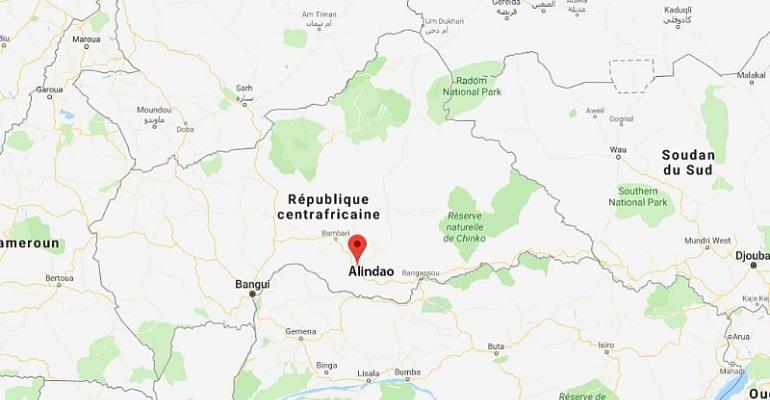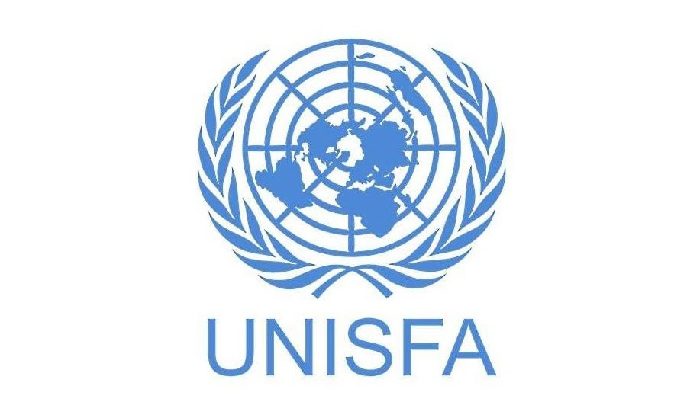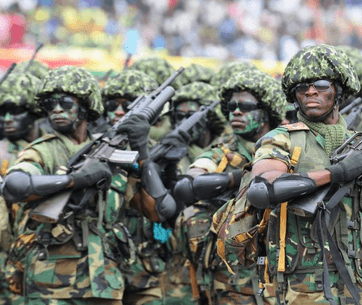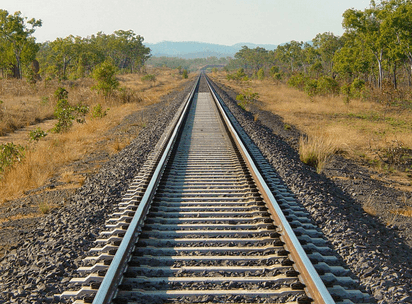
Amnesty International has called on the United Nations to carry out a thorough investigation into the response by peacekeepers to an attack last month in the Central African Republic, that killed as many as 100 civilians at a displaced persons camp, according to the rights group.
On 15 November, a camp for internally displaced persons (IDPs) in Alindao was attacked, killing between 70 and 100 people, with some burned alive, according to Amnesty's report.
The camp in the southern town, housing some 18,000 people, was under the protection of the UN Minusca force when it came under attack by rebels from the Union for Peace (UPC) group, an offshoot from the mainly-Muslim Seleka rebel group.
Multiple eyewitness reports said UN peacekeepers did not engage the attackers but instead retreated in an armoured vehicle, leaving the IDPs unprotected.
“It's clear that they didn't respond," says Joanne Mariner, a senior crisis response advisor at Amnesty, who carried out the research.
"The question is whether they were in a position to respond. We would like to see an international investigation carried out to assess whether they responded appropriately”
Details of the attack
Reprisal killings between Seleka off-shoots and majority Christian anti-balaka militias have continued for around six years, since a December 2012 rebellion that brought down President François Bozizé.
Vladimir Monteiro, Minusca spokesman says when UPC fighters come under attack by anti-balaka, they often retaliate in the camps.
In the early morning of the 15 November attack, the driver of a motorcycle-taxi, Abakar Ali, a Muslim, was shot dead, while his passengers escaped unharmed.
Amnesty says when Ali's body was returned to the mosque to be washed, which appeared to spark the outrage that generated the attack, along with another unverified incident.
Finger-pointing
The report holds UN peacekeepers at Alindao responsible for failing to properly warn civilians of the attack. It also said despite being outnumbered, the UN force had access to heavier weapons and armoured vehicles but did not fire a single shot, either as a deterrent or in direct defence.
Monteiro tells RFI that such action “was not possible” because the UPC fighters could not have been stopped by 50 Minusca troops.
“They took the decision to protect those who sought refuge (...) which was around 3000 IDP,” Monteiro says. “Unfortunately we couldn't do more. It was impossible to contain that violence.”
Militarisation of camps
In addition to a lack of action on the part of the troops, there is criticism of a growing militancy within camps.
At Alindao, anti-balaka fighters were known to be among the IDPs, which meant civilians were almost certain to be among the victims of any reprisal attacks by Seleka off-shoots.
“One of the problems that we pinpointed was that anti-balaka militia, which (...) have a terrible record of killing Muslim civilians, essentially use the camp as their safe haven," says Amnesty's Mariner. "That (...) caused the ire of the Muslim civilians who took part in the attack.
"The camp needs to be demilitarised. There needs to be more done to keep out armed men and arms. “
Minusca says it is not always possible to demilitarised IDP camps, particularly in the case at Alindao.
“We are talking about (...) huge camps. They are not closed camps," says Monteiro. "People can get inside this area from many entry points.
"In some areas, we are trying to address the issue (...) but for that we use the UN Police. But in Alindao, we only have 50 troops, so that was impossible to conduct such police action.”
Investigation
Amnesty's report concludes with a demand that an international investigation be conducted into the decisions and lack of action taken by the UN troops at the camp.
Such incidents are not rare.
On 4 December, a similar situation occurred 100 kilometres north of Alindao in Ippy. Mariner says the same lack of action on the part of UN troops was also seen at a recent attack in the Central African town of Batangafo .
"We've [also] seen in it South Sudan where there's been attacks on civilian camps, IDP camps, that again were not protected by UN forces even though they were based at the camps.
"This is an-going problem. And it really is time for the UN to investigate why this continues to happen.”
Monteiro says a probe is being conducted by Minusca's “civilian and military [missions] (...) to find out what happened at Alindao.”
He adds that the number of troops at Alindao has been increased “to make sure that UPC elements do not attack IDPs and we are also working with the communities in Ippy and Alindao and Batagnafo to bring together the communities.”















Facebook
Twitter
Pinterest
Instagram
Google+
YouTube
LinkedIn
RSS